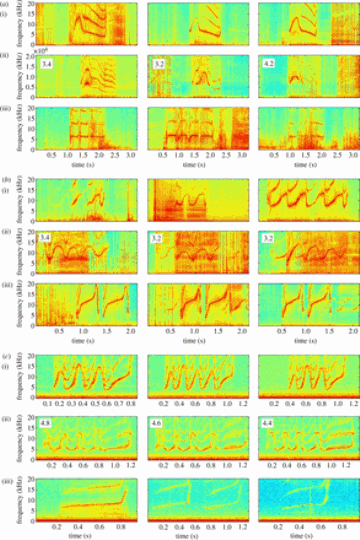New findings published in the Proceedings of the Royal Society B suggest that bottlenose dolphins use signature whistles to identify themselves and are able to learn and recognize the “names” of other dolphins. Scientists always thought that this cognitive ability, known as “referential communication with learned signals,” was unique to humans.
In an ongoing study that originated in 2006, a team of scientists reviewed  the research of the Sarasota Dolphin Research Program (SDRP) from 1984-2009, in which scientists temporarily captured wild dolphins and held them separately. They confined the dolphins in a manner that allowed them to hear, but not see, one another. The original study also used four already captive dolphins in addition to the ones they captured.
the research of the Sarasota Dolphin Research Program (SDRP) from 1984-2009, in which scientists temporarily captured wild dolphins and held them separately. They confined the dolphins in a manner that allowed them to hear, but not see, one another. The original study also used four already captive dolphins in addition to the ones they captured.
The audio recordings revealed the frantic calls of the trapped dolphins. Some of the vocalizations were copies of their pod mates’ signature whistles and were an apparent effort to stay in contact with each other throughout their stressful capture.

Spectrograms showing three examples each of the (i) signature whistle of the animal being copied, (ii) signature whistle copies and (iii) the signature whistle of the copier.
In the original study done at SDRP, most of the dolphins scientists separated were mothers and calves. The male dolphins studied also mimicked signature whistles from animals who we knew to be close associates. This suggests that these calls were not made in an aggressive manner (a la bird chatter) but were more akin to calling out for a missing child or lost friend.
However, the dolphins did not precisely replicate each other’s signature whistles. The new research reveals that dolphins added, “fine-scale differences in some acoustic parameters” as variations on the original whistles.
According to the research team, these new findings seem to suggest evidence of a dolphin dialogue. They are cautious about calling it a “language”, and say that further studies are necessary for both dolphins and other species:
“It is possible that signature whistle copying represents a rare case of referential communication with learned signals in a communication system other than human language. Future studies should look closely at the exact context, flexibility and role of copying in a wider selection of species to assess its significance as a potential stepping stone toward referential communication.”
Note: The Nonhuman Rights Project does not endorse experimentation on captive animals. However, we do quote the results of these experiments when they help make the case that the animals have a level of sentience, self-awareness, and, in some cases, a theory of mind that demonstrates that we should not keep them in captivity in the first place.